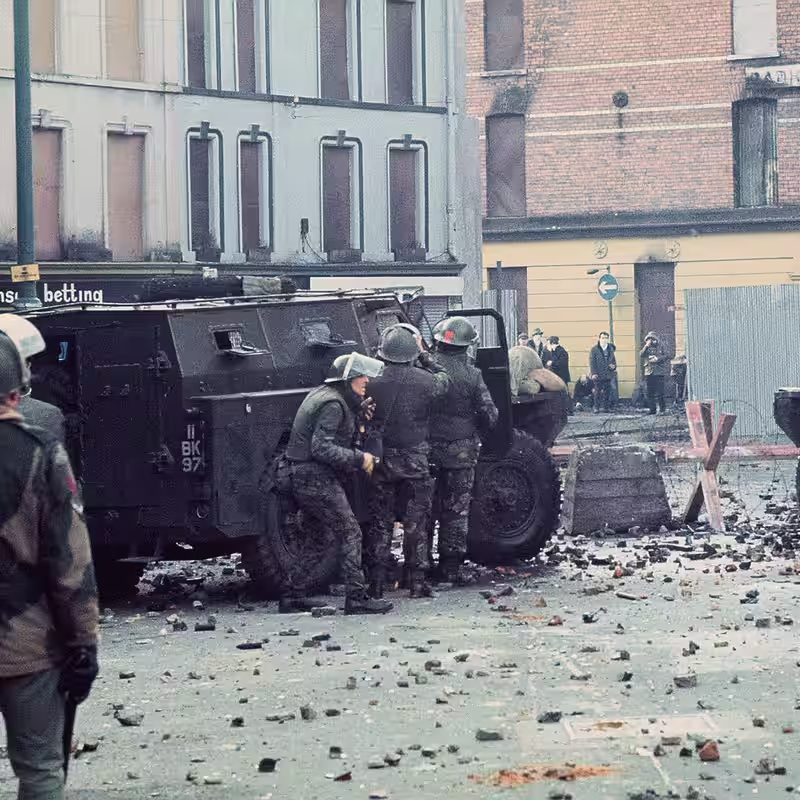Table of Contents
- Bloody Sunday Revisited
- Who Is Soldier F?
- The Trial and Verdict
- Public and Political Reaction
- Legacy of Bloody Sunday
- Sources
Bloody Sunday Revisited
More than 50 years after British paratroopers opened fire on a civil rights march in Derry, Northern Ireland—killing 14 unarmed civilians—a former soldier known only as Soldier F has been acquitted of murder charges. The verdict, delivered on October 23, 2025, reignites painful memories of one of the darkest chapters in the Troubles and stirs renewed debate over justice, accountability, and historical reckoning.
The events of January 30, 1972—forever etched in history as Bloody Sunday—saw British Army paratroopers fire into a crowd of peaceful demonstrators protesting internment without trial. Thirteen people died that day; a fourteenth succumbed months later from injuries.
Who Is Soldier F?
Soldier F, whose real identity remains protected by court order, was a member of the 1st Battalion, Parachute Regiment. He stood accused of killing two men—James Wray and William McKinney—and attempting to murder five others during the massacre.
Despite decades of inquiries, including the landmark Saville Report in 2010—which concluded the victims were innocent and the shootings “unjustified and unjustifiable”—criminal prosecution remained elusive until recent years. Soldier F was charged in 2019, marking the first time any British soldier faced murder charges over Bloody Sunday.
The Trial and Verdict
After a protracted legal process hampered by evidentiary challenges and political sensitivities, the trial concluded in London’s Old Bailey this week. The judge ruled that the prosecution failed to prove beyond a reasonable doubt that Soldier F acted with murderous intent.
Key factors in the acquittal included:
- Conflicting eyewitness accounts after 50+ years
- Lack of forensic evidence directly linking Soldier F to fatal shots
- Reliance on decades-old testimony deemed unreliable by the court
The judge emphasized that while the events of Bloody Sunday were “deeply tragic,” the burden of proof in a criminal trial could not be met with the available evidence.
Public and Political Reaction
The verdict has drawn sharp condemnation from victims’ families and human rights advocates. “This is not justice,” said Kate Nash, whose brother was killed on Bloody Sunday. “It’s another betrayal.”
Irish Taoiseach Micheál Martin called the outcome “deeply disappointing,” while Northern Ireland’s First Minister expressed concern over the impact on community trust in the justice system.
In contrast, UK Defence Secretary Grant Shapps stated the verdict “upholds the rule of law” and warned against “retroactive justice based on political pressure.”
Legacy of Bloody Sunday
Bloody Sunday remains a symbol of state violence and a catalyst for decades of conflict in Northern Ireland. The massacre galvanized support for the Irish Republican Army and deepened sectarian divides.
While the 2010 Saville Inquiry led then-Prime Minister David Cameron to issue a historic apology—calling the killings “unjustified and unjustifiable”—the lack of criminal convictions has left many families feeling that true accountability was never achieved.
With Soldier F’s acquittal, legal avenues for prosecution appear exhausted, shifting the focus toward historical memory, education, and reconciliation efforts.
Sources
The New York Times: British Soldier Is Acquitted of Murder in 1972 Bloody Sunday Massacre




